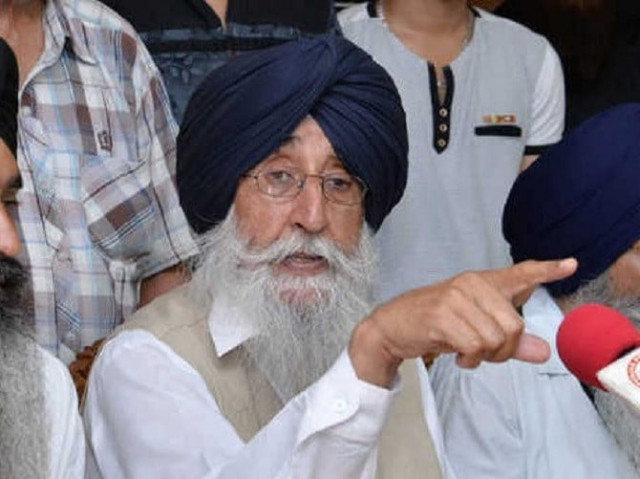Sikh separatist leader clinches parliament seat in India
Sikh leader says Delhi cannot oppress Sikh nation the way its oppresses Muslims in India

Simranjeet Singh Mann, an active leader of the Khalistan movement in Indian Punjab, has clinched a berth on the Indian parliament in a development that might have set off alarm bells for the Narendra Modi government.
Mann won the Sangrur Lok Sabha seat after defeating his nearest rival from Aam Aadmi Party (AAP) Gurmail Singh, by a margin of 5,822 votes.
Mann’s win from Sangrur constituency, which was considered a stronghold of AAP, is a major setback for the party in Punjab, where it came into power just three months ago.
Speaking to the media after his electoral victory, Mann acknowledged the sacrifices of Sikhs, especially popular Punjabi singer/rapper Sidhu Moosewala, who was assassinated allegedly by hitmen of a gang. However, the Sikhs consider it as a state-sponsored murder.
Also read Golden Temple massacre: 38 years of Sikh wounds that never heal
Mann, 77, attributed his success to the hard work of all Sikhs who sacrificed their lives for their community’s cause. “The Indian government cannot treat the Sikh movement like it has treated Kashmiris or Naxalites who have been shot at by the Indian police with impunity,” he said.
“We have reached a stage where India cannot treat us like that,” he said referring to the Sikh movement and vowed that he would become the voice of oppressed communities in the Indian parliament.
Mann’s victory came amid a series of actions by the Modi regime to suppress the Sikh movement in Punjab. In one instance, the BJP government asked YouTube to remove a song of Sidhu Moosewala that highlighted the injustice faced by Sikh farmers.
The song, ‘SYL’, garnered more than 25 million views within 24 hours of its release and was the slain singer’s last recording. Apart from the water issues, it also reflects on the 1984 Sikh riots, farmer laws and the hoisting of Khalistan flag on Delhi’s Red Fort during the farmers protests of 2021.
Similarly, the Indian government has taken measures to restrict the movement of Sikh pilgrims who visit Pakistan for religious tourism.
As per the government, the yatris cannot stay at the homes of their Pakistani hosts, else they would be blacklisted. The Sikh pilgrims could only stay at Gurdwaras.
The Sikh community had organised mass protests across India and held a year-long sit-in against the new farming laws introduced by the BJP government. Subsequently, the government had to relent and the laws were repealed.



















COMMENTS
Comments are moderated and generally will be posted if they are on-topic and not abusive.
For more information, please see our Comments FAQ